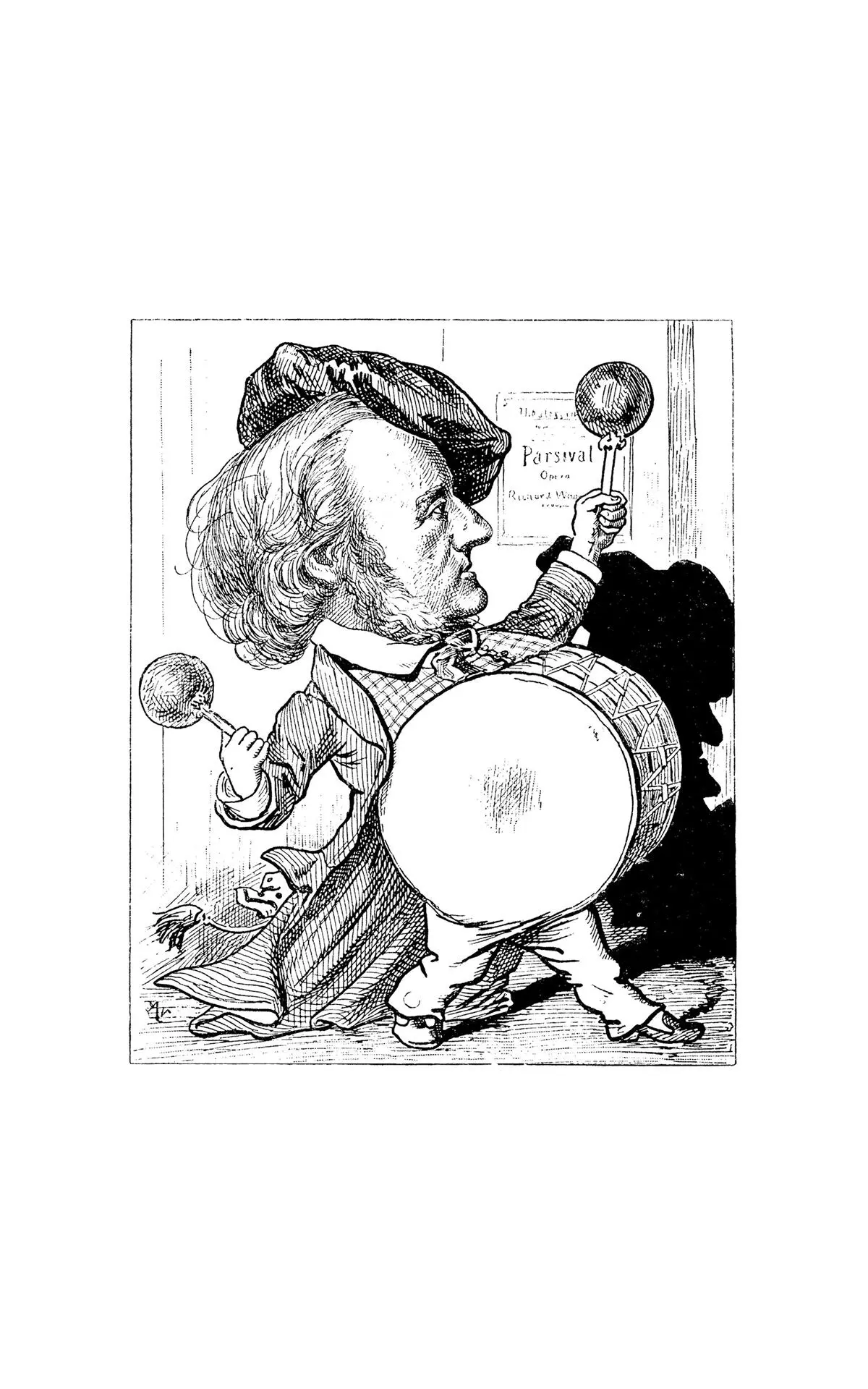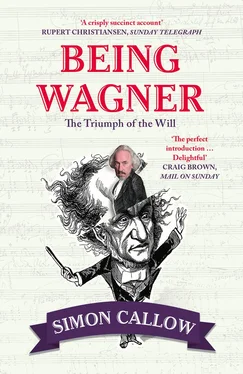That was the way he spoke.
By we, he meant, of course, the German people. The first, the most important thing he had to say, was that the great work he had brought into existence was, above all else, German.
At a celebratory banquet the following night, after an interminable and obscure speech by a Reichstag deputy, the Hungarian politician Count Albert Apponyi leaped to his feet unannounced and said:
Brünnhilde – the new national art – lay asleep on a rock, surrounded by a great fire. The god Wotan had lit this fire, so that only the victorious and finest hero, a hero who knew no fear, would win her as his bride. Around the rock were mountains of ash and clinker – the cross-breeding of our own music with non-German elements. Along came a hero, the like of whom had never been seen before, Richard Wagner, who forged a weapon from the fragments of the sword of his fathers – the classical German masters – and with this sword he penetrated the fire, and with his kiss he awoke the sleeping Brünnhilde. ‘Hail to you, victorious light!’ she cried and with her we join our voices: ‘Three cheers to our master, Richard Wagner! Hip hip! Hip hip! Hip hip!’
So that was it: Wagner was the hero of the newly unified German Reich, which had come into being just five years earlier, and his music was its music. Many people, including many Germans, felt very uncomfortable about this new Germany, and The Ring of the Nibelung seemed to embody, in its grandiosity, its self-celebrating Teutonic tub-thumping, its primitivism, everything that worried them about it. Wagner himself, after a brief and unsuccessful flirtation with the masters of the new establishment, was already somewhat unenamoured of their policies: to his immeasurable disgust, one of Reichskanzler Bismarck’s first acts had been to give the vote to Jews. Wagner also, more surprisingly, loathed the new climate of militarism and imperialism. He withdrew back into the kingdom of art where he would always be absolute monarch, where his will would always prevail, where he could explore the depths and the heights of human experience – by which he meant, of course, his own experience.
None of this – Wagner’s creation of a new national art, his acclaim as the greatest German artist of his times, the creation of his custom-built theatre – could possibly have been predicted at any point in the composer’s life up to that point. It was, to be sure, exactly what he set out to do, almost to the letter. But there was nothing inevitable about it whatever. The massive solidity of his achievement grew out of and existed in the face of profound instability, both internal and external, an instability which characterises every stage and every phase of his life and which indeed is at the very heart of his music. At every turn of the way, his vision, and he was nothing if not visionary, was in danger of being sabotaged, either by circumstances, or by other people, or – more often than not – by himself.
We know all this because he told us. We know everything about this extraordinary man, everything, that is, except the most important thing: how he created his music. Because even he, the great motor-mouth, the obsessive self-analyst, was unable to explain that. But everything else, we know. Not just because of the memoirs, the reviews, the police records, the biographies, but because, in a way unusual in a musician – almost unknown, in fact – he was driven to communicate verbally, to explain himself in conversation, in letters, in speeches, in diaries, in pamphlets, in books. He wrote about art, music, theatre, history, politics, race, language, anthropology, myth, philosophy. Above all he wrote about himself. All this self-centredness was not simple egomania, though it was that too. It was how he engaged with his creativity.
Before he could compose a note he needed to articulate his position, to formulate his philosophy, to put himself in relation to the work and to the world – to dramatise himself as an artist, one might say. And for those who were susceptible, this torrent of words and this vision of himself was bewitching – positively hypnotic. For others (including some of his closest associates) it was unnerving, dangerous, overwhelming, almost life-threatening. His production of himself was inextinguishable. Many people tried to stop him, to suppress him, to silence him. Nothing but death could stem the flow. Where did it all come from? What was going on inside Wagner’s head?

Конец ознакомительного фрагмента.
Текст предоставлен ООО «ЛитРес».
Прочитайте эту книгу целиком, купив полную легальную версию на ЛитРес.
Безопасно оплатить книгу можно банковской картой Visa, MasterCard, Maestro, со счета мобильного телефона, с платежного терминала, в салоне МТС или Связной, через PayPal, WebMoney, Яндекс.Деньги, QIWI Кошелек, бонусными картами или другим удобным Вам способом.













